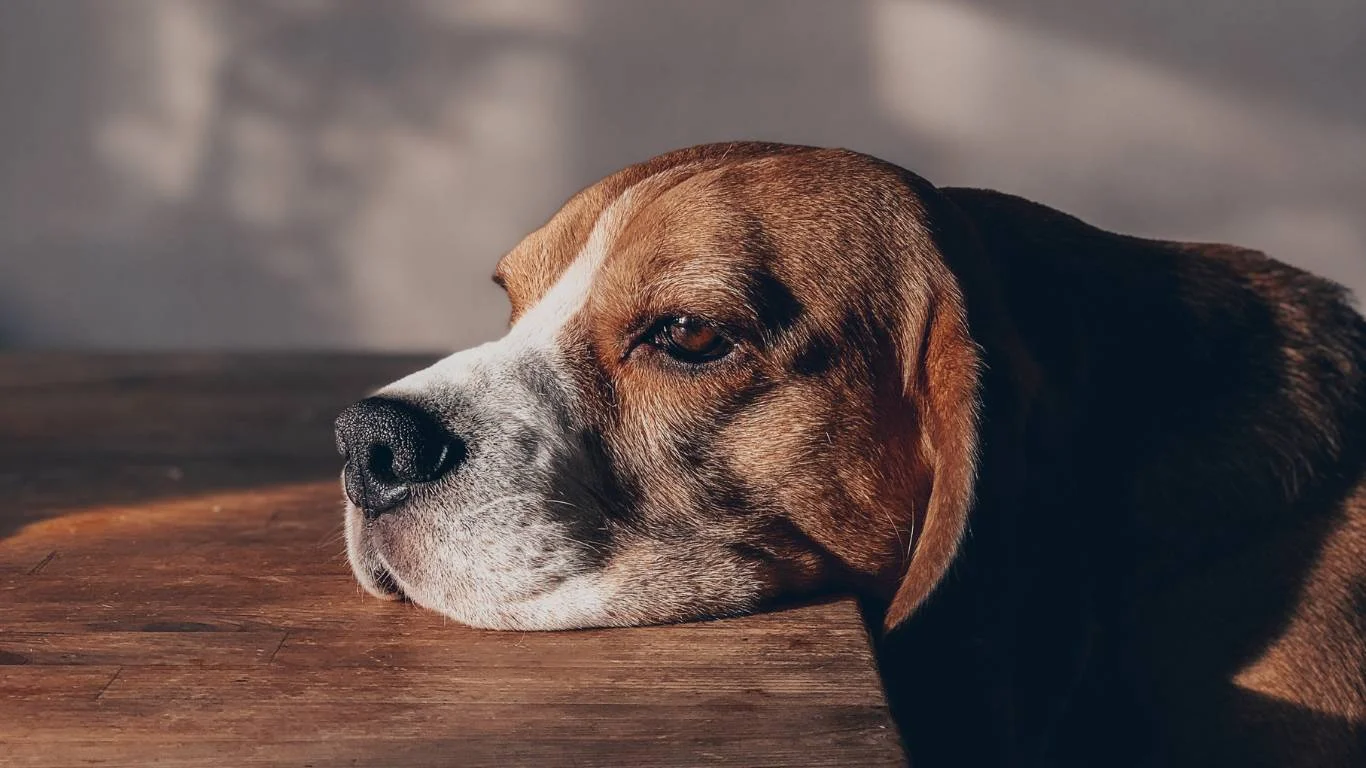Best Home Remedies for Dog Constipation: Quick Solutions for Comfort
As a pet nutritionist and expert in veterinary care, I’ve seen it all when it comes to our furry friends’ digestive issues. One common concern that many dog owners face is constipation, which can leave both the pup and their owners frustrated. The good news is that there are several home remedies for dog constipation that can help relieve your dog’s discomfort and get things moving in the right direction. In this guide, I’ll share some tried-and-true methods, from simple dietary changes to easy-to-make natural remedies, that can help improve your dog’s digestive health. Whether you’re dealing with a minor case of constipation or just want to be proactive in preventing it, these tips will guide you to a happier, healthier pup.
Understanding Dog Constipation: What You Need to Know

Before we dive into the remedies, let’s take a quick moment to understand what constipation is and why it’s such an issue for dogs. Like humans, dogs can experience constipation when their bowel movements become infrequent, difficult, or painful. This can be due to a variety of factors, including dehydration, lack of fiber, poor diet, or even stress. As a veterinary professional, I’ve seen a wide range of cases, and while some may be linked to more serious health issues, many are completely treatable with a few simple changes at home.
If you’re noticing your dog straining to go potty, having fewer bowel movements than usual, or even showing signs of discomfort like whining or licking their rear end, it’s time to take action. Thankfully, there are plenty of gentle and effective remedies you can try at home to help get your dog back on track.
1. The Importance of Hydration in Relieving Constipation

One of the easiest and most overlooked solutions to dog constipation is simply making sure your pup stays well-hydrated. Dehydration is a major contributor to constipation in dogs because when your dog doesn’t drink enough water, their body absorbs too much moisture from the stool, making it hard and difficult to pass.
As a general rule of thumb, dogs should drink around 1 ounce of water per pound of body weight each day. But if your dog is experiencing constipation, they may need a little extra hydration. I recommend offering fresh water throughout the day, and if your dog isn’t a big water drinker, you can try adding a bit of low-sodium chicken broth to encourage them to drink more. This is a great, simple way to boost their fluid intake.
2. Adding Fiber to Your Dog’s Diet

Another effective home remedy for dog constipation is boosting your dog’s fiber intake. Fiber helps bulk up the stool and facilitates easier movement through the intestines. It’s like nature’s little helper for digestion!
There are several ways to add more fiber to your dog’s diet. You can try mixing in some cooked pumpkin, which is a natural source of fiber and moisture. I’ve personally recommended it to many dog owners, and it works wonders. A few spoonfuls of pureed pumpkin (not the spiced pie filling!) added to your dog’s food can be a game-changer. The fiber in pumpkin is gentle on their system and also helps regulate their digestive tract.
Other fiber-rich options include cooked sweet potatoes, green beans, and even oatmeal. Just remember to introduce these new ingredients gradually to avoid upsetting your dog’s stomach, and always consult your vet before making any major dietary changes.
3. Gentle Exercise: A Natural Digestive Boost
Sometimes, all it takes to help your dog pass a stool is a little movement. Exercise helps stimulate the intestines and promotes regular bowel movements. If your dog is able to move around comfortably, a walk around the block or some time in the backyard can be just what they need to get things moving.
Even a short, gentle walk can work wonders. I always tell my clients that a little exercise goes a long way, not only for constipation but also for your dog’s overall health. Plus, it’s an excellent bonding activity! Just be sure to monitor your dog during exercise to make sure they’re not overexerting themselves, especially if they’re already feeling discomfort from constipation.
4. Natural Laxatives: Safe Options for Your Dog
If you’re looking for more targeted remedies, natural laxatives are another great option. One of my favorites is the use of coconut oil, which is known for its natural digestive benefits. Adding a teaspoon of coconut oil to your dog’s food can help lubricate the digestive tract and make passing stool easier.
Another option is olive oil, which has similar effects. Just be sure to use these oils sparingly, as too much can cause an upset stomach or diarrhea. I always tell pet parents to start with small amounts and monitor their dog closely for any signs of adverse reactions.
How to Know When It’s Time to See a Vet
While home remedies can work wonders for mild cases of constipation, there are times when it’s important to consult your veterinarian. If your dog’s constipation is severe, persistent, or accompanied by other symptoms such as vomiting, bloating, or a lack of appetite, you should reach out to your vet as soon as possible. These could be signs of a more serious underlying health condition that requires medical attention.
Remember, as a pet nutritionist and veterinary professional, my number one priority is always your dog’s health and well-being. If you ever have any doubts or concerns, don’t hesitate to seek professional advice. After all, when it comes to your dog’s health, it’s better to be safe than sorry!
Preventing Dog Constipation: Proactive Measures You Can Take

Now that we’ve covered some effective home remedies for dog constipation, it’s just as important to think about prevention. As a pet nutritionist, I always tell my clients that keeping their dog’s digestive system in balance is far easier than trying to fix an issue once it’s already started. A proactive approach goes a long way, and you can avoid frequent constipation by making a few simple changes to your dog’s routine and diet. Let’s dive into some of the best practices to keep your dog’s digestive health in check.
1. A Well-Balanced Diet: The Foundation of Healthy Digestion
One of the most important steps you can take to prevent constipation is ensuring that your dog’s diet is well-balanced. This means providing the right amount of fiber, protein, and fats to support their digestive health. Fiber is especially important, as it adds bulk to your dog’s stool and helps keep things moving through the intestines. If you’re unsure about how much fiber your dog needs, don’t worry. Most dog foods will have a recommended daily amount based on your dog’s size and age. If you’re feeding homemade food, I recommend consulting with a veterinarian to make sure you’re meeting all your dog’s nutritional needs.
From my experience, a high-quality, well-balanced dog food made with natural ingredients is usually the best option for maintaining healthy digestion. You can also try incorporating fresh vegetables like spinach, carrots, or peas into their meals. But don’t forget to introduce any new foods slowly, as sudden dietary changes can sometimes cause digestive upset.
2. Regular Exercise: Keep Things Moving

As I mentioned earlier, exercise plays a huge role in digestive health. Keeping your dog physically active is not only great for their overall well-being, but it also helps keep their digestive system functioning smoothly. Regular walks, playtime, and outdoor activities are all wonderful ways to encourage healthy bowel movements.
One of my personal favorites is taking dogs on morning or evening walks. Not only is it a great bonding time, but it also gives them the chance to get some fresh air, stretch their legs, and, most importantly, promote digestion. I often suggest to clients that they aim for at least 30 minutes of exercise each day—though more active breeds may require more. Remember, though, don’t push your dog too hard, especially if they’re experiencing constipation. Gradually increasing exercise is key to giving their digestive system time to adjust.
3. Keep Their Stress Levels Low
Stress is another factor that can wreak havoc on your dog’s digestive health. Just like us, dogs can experience digestive upset when they’re stressed out, and in some cases, this can lead to constipation. I’ve worked with many clients who didn’t realize how much stress their dogs were under. It could be from a change in routine, new environments, or even the presence of other animals. The key is to help your dog stay calm and comfortable.
To reduce stress, consider creating a calm and consistent daily routine. For example, sticking to the same feeding times, walks, and rest periods can help your dog feel secure and relaxed. Providing them with a safe space, such as a cozy bed or crate, can also help when they need time to unwind. If you’re traveling or going through major changes in your life, try to ease your dog into these transitions slowly to minimize any anxiety.
4. Supplementing with Probiotics for Healthy Gut Flora
Probiotics are another tool that I’ve recommended to many pet owners who are looking to improve their dog’s digestive health. These beneficial bacteria help maintain a healthy gut microbiome, which in turn supports regular and comfortable bowel movements. Probiotics can be found in supplement form, and many high-quality dog foods already contain them.
There are also many probiotic products made specifically for dogs, such as powders or chewable tablets that you can add to their meals. I personally recommend speaking with your vet before introducing any new supplements to make sure you’re choosing the right product and dosage for your dog’s specific needs.
5. Monitor Their Weight: Obesity and Constipation
Maintaining a healthy weight is critical in preventing dog constipation, as obesity can lead to a variety of digestive issues. Overweight dogs are more likely to experience slow digestion and constipation due to extra pressure on their intestines and reduced mobility. This is one area where diet, exercise, and regular vet checkups come into play.
If your dog is overweight, it may be time to reevaluate their food intake and exercise routine. A vet can help you determine if your dog’s weight is within a healthy range and suggest adjustments as needed. Gradual weight loss is always the safest approach, so be patient and stay consistent with your efforts to get your dog back in shape.
When Home Remedies Aren’t Enough: What Comes Next?

While most cases of dog constipation can be successfully managed at home, there are times when professional intervention is needed. If your dog’s symptoms persist despite your efforts, or if you notice additional signs like vomiting, loss of appetite, or lethargy, it’s time to visit your vet. As a veterinary professional, I can tell you that some conditions, such as intestinal blockages, infections, or even neurological issues, may require immediate attention and treatment.
Your vet may recommend additional tests, like X-rays or blood work, to get to the root of the problem. In some cases, prescription medications or more intensive treatments may be necessary to relieve constipation and address any underlying health issues.
It’s always better to be safe than sorry when it comes to your dog’s health. Even if you’ve tried everything at home and things aren’t improving, don’t hesitate to reach out to your vet. They can offer guidance, ensure your dog is comfortable, and provide a tailored treatment plan based on their needs.
In the next section, we’ll take a closer look at some more natural solutions and lifestyle tips that can help you maintain your dog’s digestive health for the long term. Stay tuned!
Case Studies & Real-Life Examples

As a pet nutritionist with years of experience, I’ve seen a variety of cases where simple home remedies and dietary adjustments have worked wonders for dogs suffering from constipation. Here are a couple of real-life examples to give you a better sense of how these solutions can help your pup.
One of my clients, a lovely Golden Retriever named Daisy, had been struggling with occasional constipation. Daisy’s owner had noticed that her stool was dry and infrequent, and sometimes she would have a hard time going potty. After a thorough evaluation, we determined that Daisy wasn’t drinking enough water and her fiber intake was on the low side. I recommended adding more wet food to her meals and incorporating a few spoonfuls of pureed pumpkin. Within just a couple of days, Daisy’s bowel movements became more regular, and she was much more comfortable. It was a simple fix, but it made all the difference for her.
Another example is Max, a senior Poodle who had been experiencing chronic constipation for a few months. His owner had tried several remedies at home, including fiber-rich foods and extra water, but the constipation persisted. After a detailed examination, I found that Max had some underlying arthritis, which made it difficult for him to exercise as much as he used to. His lack of movement was contributing to his constipation. By adding a gentle daily walk to Max’s routine, along with some light stretching, his digestive issues improved significantly. Sometimes, it’s not just about food—it’s about considering other factors like mobility and exercise, especially with older dogs.
Key Takeaways: What You Need to Remember
As we wrap up this guide on home remedies for dog constipation, here are some of the key takeaways to remember:
- Hydration is essential. Always make sure your dog has access to fresh water throughout the day. Dehydration can make constipation worse, so keep their fluid intake up.
- Fiber is your friend. Whether it’s from canned pumpkin, sweet potatoes, or other fiber-rich foods, adding fiber to your dog’s diet can help regulate their digestion and prevent constipation.
- Exercise matters. Regular physical activity is crucial for keeping things moving in your dog’s digestive system. Even a short walk can do wonders!
- Natural remedies work. Simple natural solutions like coconut oil and olive oil can help lubricate the intestines and make it easier for your dog to pass stool.
- Consult your vet when in doubt. If home remedies aren’t working or your dog’s symptoms are severe, it’s always best to consult your veterinarian. There may be an underlying condition that requires medical attention.
FAQs
1. How long does it take for a dog to recover from constipation with home remedies?
The time it takes to see improvements can vary depending on the severity of your dog’s constipation and the remedies you’re using. For mild cases, you may notice improvements within 24-48 hours. However, if your dog’s constipation persists, or if you notice any signs of discomfort, it’s important to consult your vet for further advice.
2. Is it safe to give my dog laxatives for constipation?
While some natural laxatives like coconut oil and olive oil can be safe in moderation, it’s crucial to avoid using over-the-counter human laxatives or medications without consulting your vet. Some human laxatives can be toxic to dogs and can cause serious health issues. Always err on the side of caution and seek professional advice.
3. Can a change in diet cause constipation in dogs?
Yes, a sudden change in diet can lead to constipation. If you’re transitioning your dog to a new food, it’s important to do so gradually to give their digestive system time to adjust. Sudden changes can upset their stomach and cause either constipation or diarrhea.
Bonus: Additional Resources or DIY Tips
Looking for more ways to help your dog stay healthy and happy? Here are a few bonus tips and resources to keep in your back pocket:
- DIY Bone Broth: Making your own bone broth is an excellent way to add moisture and flavor to your dog’s meals while promoting digestive health. Simply simmer some chicken bones, vegetables, and herbs in water for several hours. It’s nutritious and hydrating!
- Interactive Toys: To promote exercise and mental stimulation, try adding some interactive toys or puzzle feeders to your dog’s routine. This can encourage them to stay active and help with digestion, especially for older dogs.
- Pet Probiotics: If you’re looking for a natural way to support your dog’s digestive health in the long term, consider adding a high-quality probiotic supplement to their routine. This can help keep their gut flora balanced and reduce the risk of digestive issues.
Appendix: Table, References, Disclaimer, and Call to Action
It’s always important to remember that while home remedies can work wonders for mild constipation, every dog is different, and some cases require professional care. If your dog is showing signs of severe or persistent constipation, don’t hesitate to reach out to your veterinarian for guidance and support.
Disclaimer: This article is intended for informational purposes only and is not meant to replace professional veterinary advice. Always consult with your veterinarian before making any changes to your dog’s diet, exercise, or medication.
If you’ve found this article helpful, please feel free to share it with other dog owners who may benefit from these tips. And remember, you’re not alone in caring for your dog’s digestive health—there’s always support from fellow pet lovers, experts, and veterinarians like myself who are here to help!
Stay proactive, stay informed, and most importantly, keep your dog happy and healthy!






